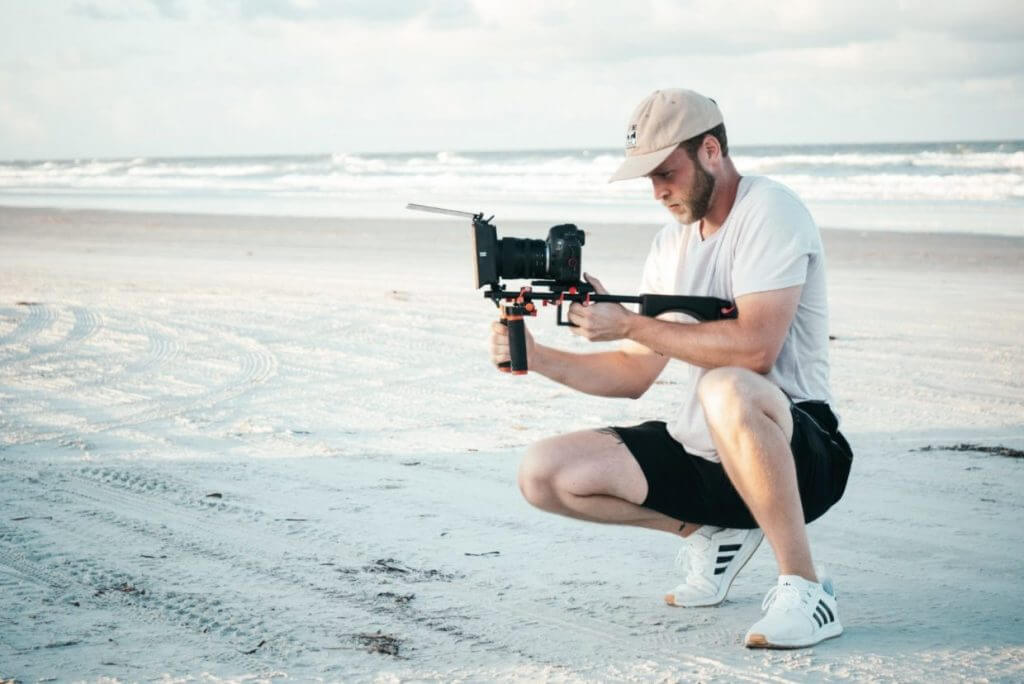Simple Hacks and Tricks That Will Greatly Improve Your Filmmaking Skills
Everyone wants to be the next Christopher Nolan, or the next Martin Scorsese, or the next Steven Spielberg, but it took them countless hours of practice and learning to develop the skills that helped them become household names for filmmaking. Just like you, they were dedicated to the craft of filmmaking.
This dedication takes years to achieve, but it’s not impossible. Natural skill can only get you so far, so the major part of the battle is learning how to develop your abilities. This means utilizing every single kind of resource to your advantage and figuring out how to apply them to bolster your repertoire of knowledge.
There is plenty to know about filmmaking to the point that film schools exist. It’s impossible to become a master of everything, but it’s not hard to start building on what you know today. Here are some simple tricks that will greatly improve your filmmaking skills.
Become More Proficient at Audio Mixing
A crucially underrated skill that a prospective filmmaker should have is learning how to properly mix audio. Having a curated ear for sound is going to help you understand how your scenes work in a much more fluid way. There are too many young filmmakers who think that film is all about aesthetics and fail to understand how other factors go into making a well-round movie, short, documentary, etc. It doesn’t mean you have to become a full-time sound engineer, but it’s good to know what’s going on.
Utilize Editing Resources and Tools
There are a plethora of editing resources and tools that are available. They are important for developing a good sense of how to work with video editing so it’s good to use them when you can. You can mess around with them to have fun, or see which actually have practical application for your movies. You can check here to see how simple it can be, from filters and texture packages as entry-level ways to improve the look of your content to more in-depth tools for hardcore editing. It never hurts to mess about and explore the wide range of editing tools available out there.
Try Recording a Variety of Content
It’s also advised that you expand your horizons of content. You might have shot a commercial, an indie film, and helped on a bigger production, which is a good experience, but you likely have one style of content for videography and filmmaking that you gravitate to, which is also fine. What’s not good is getting stuck only growing your skills on one type of content because you know you’re good at it. Do more diverse content to see if you enjoy or are good at other types of filmmaking, and it can provide more career opportunities.
Recruit Friends to Help Practice
Sometimes it’s about getting more comfortable with the equipment, but it’s hard to commit to projects without spending money. You can’t just hire actors for a week-long production to learn skills while cutting into your costs. Filmmakers are notoriously underpaid for the work they put in, especially out of pocket, so recruiting friends to practice is a good idea. They likely won’t provide you with grade A material, but the purpose could be to try out new editing techniques, test new shot angles, and attempt to experiment with your filmmaking so the acting quality and content don’t have to be top-shelf stuff.
Step Outside of Your Comfort Zone
In a similar way to trying out new content, you have to shake your fear of messing up and being watched. Plenty of people go out into the city to commit to street photography as a skill and it takes a lot to get over fear and hesitation. The same applies to filmmaking as all eyes are going to be on you in public and your crew noticing how you react when you mess up. Failure isn’t a bad thing, it’s a learning opportunity, so stepping out of your comfort zone will give you plenty of lessons on where you need to grow and what you’re doing right, along with getting more confidence to push your boundaries.
Learn the Ropes With a Bigger Variety of Equipment
You have a favorite tripod or a favorite camera set up, as many filmmakers do, but you can’t grow too attached to it. The reason is that eventually, it’s going to break, or wear down, or eventually get outdated by new tech. Whatever the reason is, you need to start expanding your gear comfortability. Knowing how to handle a better variety of equipment will make you a more adept director or cinematographer, which means you can feel more comfortable on set. Being able to pick up a camera and know exactly what to do when the moment calls for it turns you into a field general for filmmaking.
Seek Out Help and Guidance
Another thing about filmmaking is that you need to check your ego at the door real fast. Plenty of young hotshots think they’re going to be the next Kubrick, but fail to take advice, fail to ask for help, and try to take on the world by themselves only to get shut down when they fail to grow. You can avoid this by simply asking for help when you need it and seeking guidance. Try to apprentice or shadow someone who has the skill and experience to learn the ropes. Don’t be afraid to ask them too many questions. The saying of no question is a dumb question is true but even worse is not asking any at all.
Being a good filmmaker isn’t about some natural-born talent and eye for style and technique. It’s about your dedication to the craft and learning how to grow your talents every chance you get. Like many of the legendary Hollywood directors, you have to start small before you can feel truly come into your own, so using these simple tricks, you can hone your skills in quantifiable ways.
0





